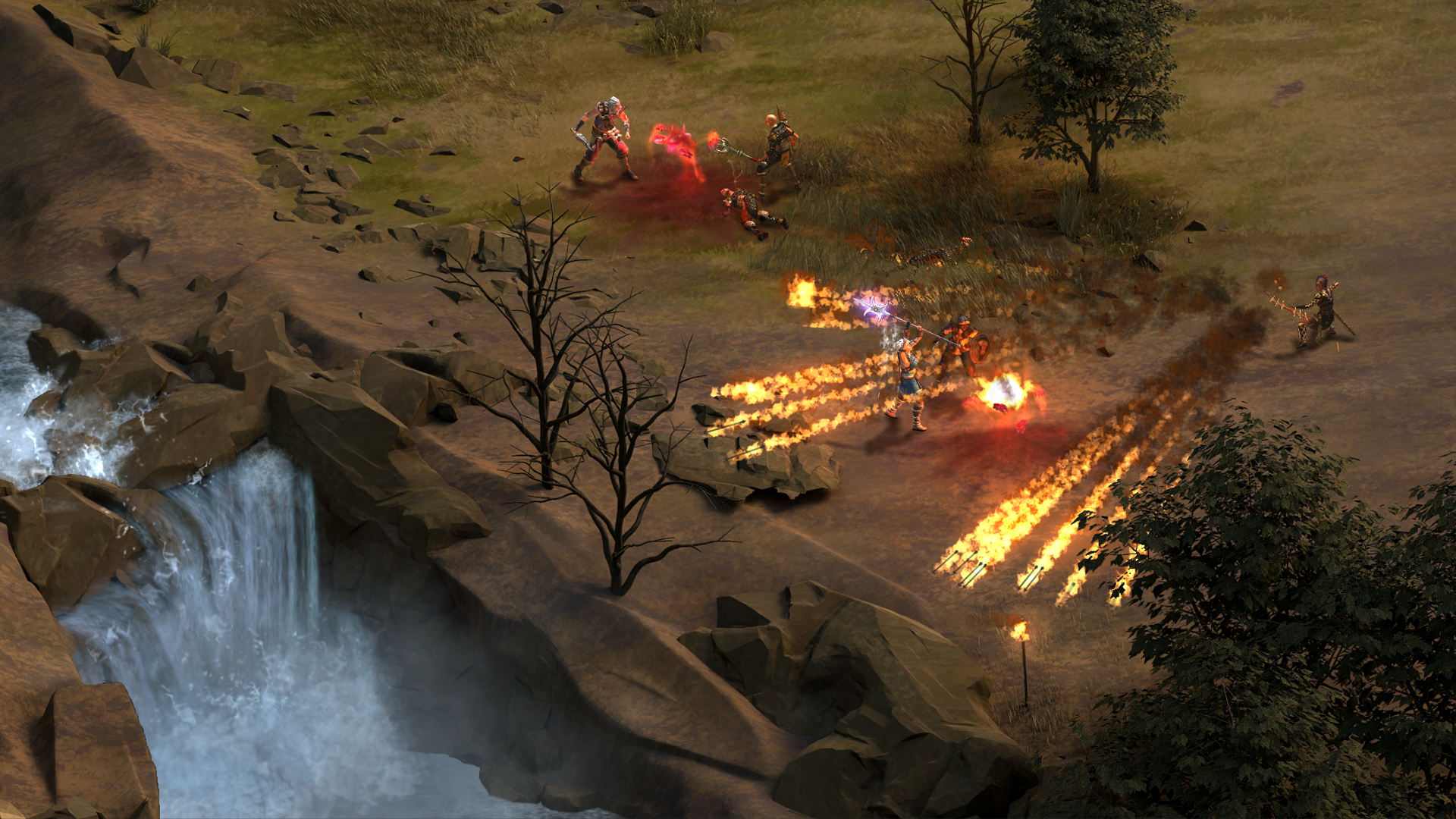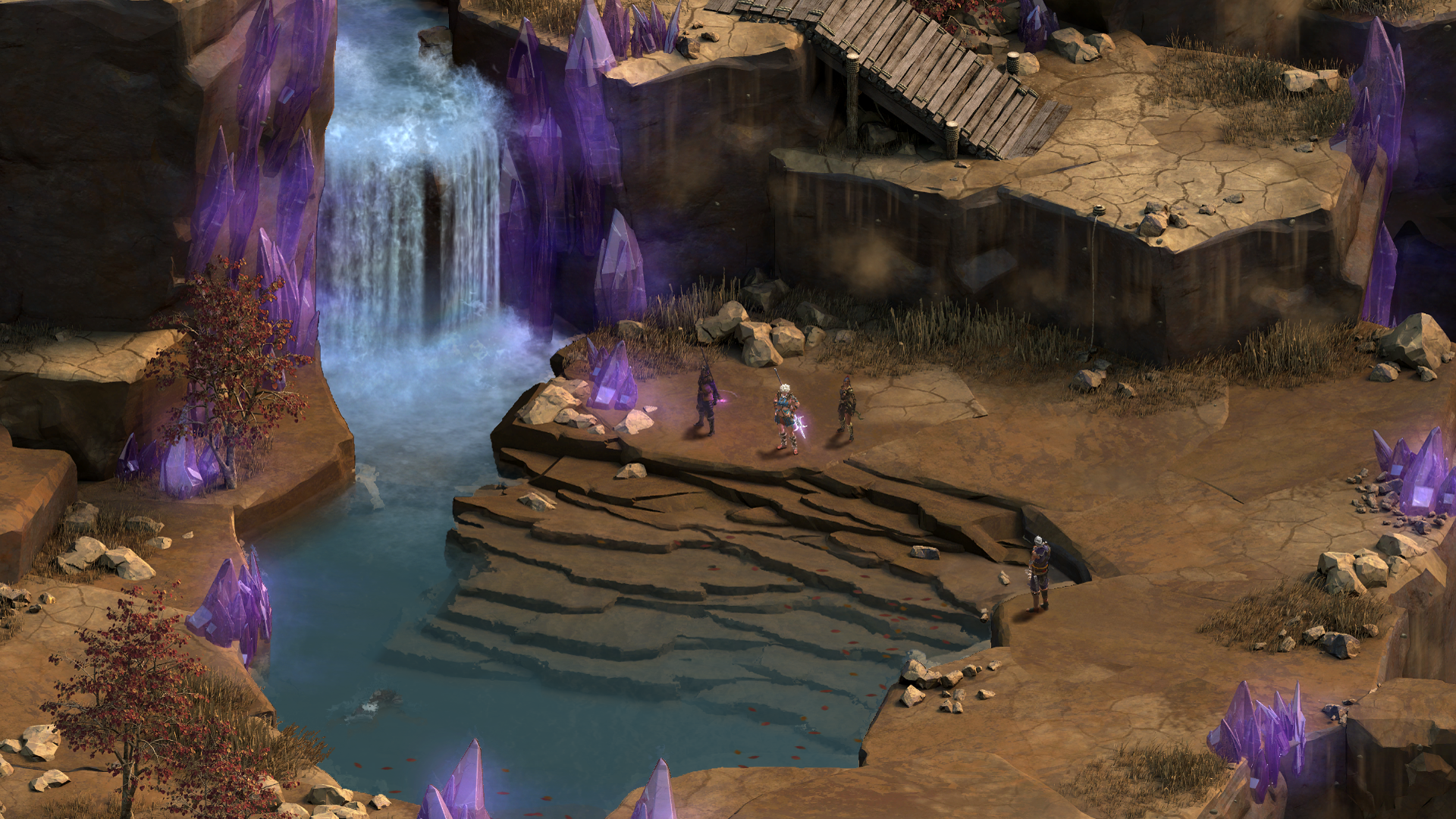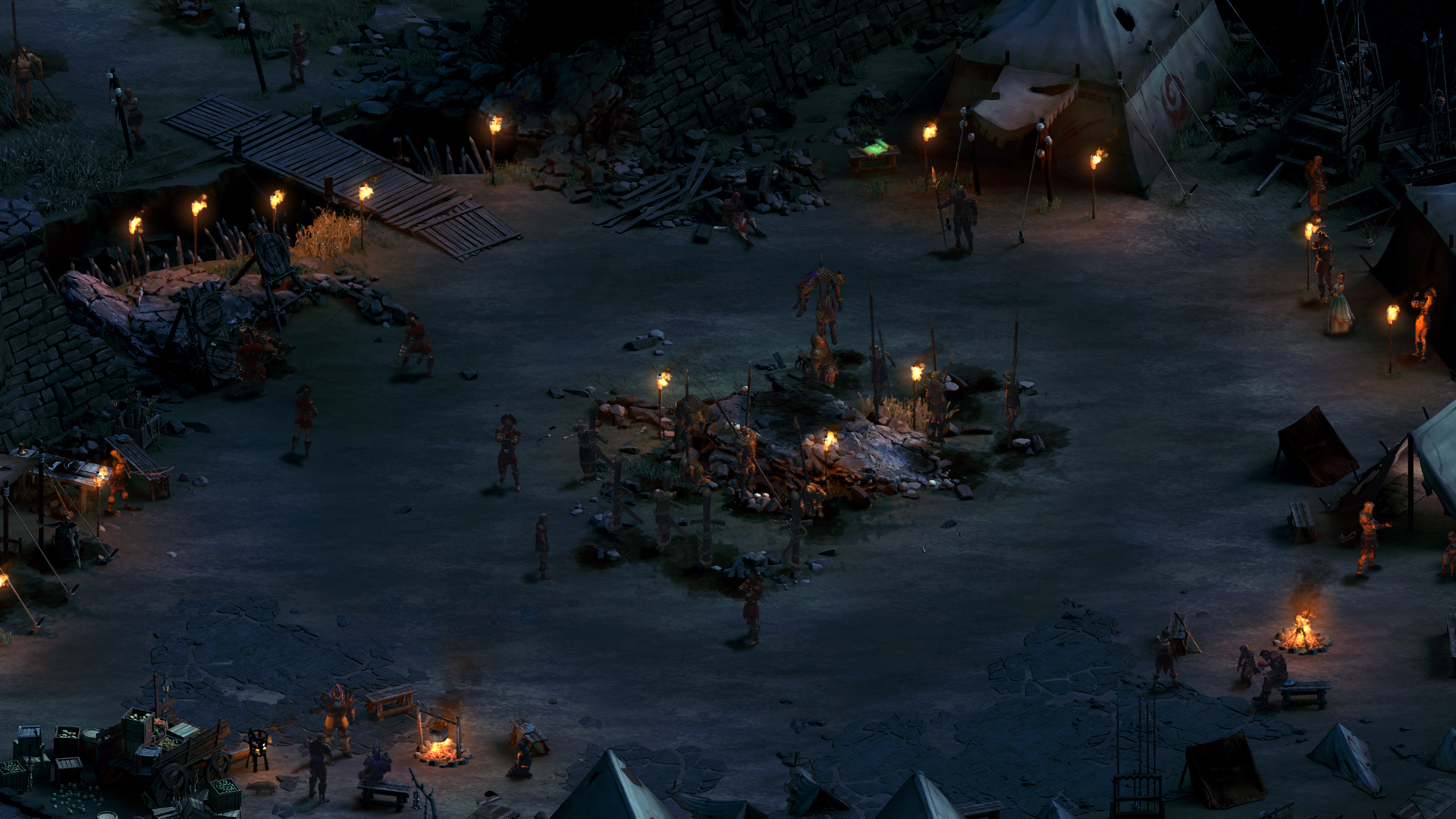Obsidian's Tyranny explores what happens after the bad guys win

Tyranny uses a classless RPG system. While you still level up with experience points, you grow your skills with magic and weapons by actually using them. If you're hoping to resolve conflicts through persuasion, intimidation, or other speech-based methods, you'll gain experience and new abilities through dialogue, too. Combat works similarly to Pillars of Eternity: real-time with pause, so you can issue commands to your companions. And the relationships you form with your companions will play a role in combat as well.
"For combat, we've built on top of the foundation that Pillars of Eternity has set. And we wanted to do that in meaningful ways," Singh says. "So, we recognized that people really enjoyed building relationships with companions, and we thought 'What if we took that into combat as well?' To do that, we've actually introduced some new abilities that are really powerful called companion combos. Companion combos are devastating abilities that can either work as great openers or even change the tide of battle, and you gain these from building your relationship with your companions."
Sometimes pissing somebody off gets you the reward you want as opposed to making them like you.
I saw one such combo being used, called Death From Above. During a skirmish, our Fatebinder used a magic-infused punch to strike the ground at the feet of one of his companions. The companion, as if on a springboard, shot up into the air and launched a barrage of arrows that rained down over a group of enemies.

The more you develop these relationships, the better a fighting team your party will become. This even includes companions you don't get along with. "You can actually get unique abilities depending on if they really love you or they hate you," said Singh. "You have some different advantages for either of those."
I asked why not getting along with a companion would still result in gaining special combos. "Sometimes pissing somebody off gets you the reward you want as opposed to making them like you," explained Brian Heins, Tyranny's Game Director.
That's true of the player's reputation with non-party NPCs as well. "Not only does the reputation that you gain with factions control how people view you but it also gains you new abilities," said Singh. "You actually get different abilities if a faction sees you in a good light or not. So if somebody's angry with you, you can actually push them more towards [anger] and actually gain unique abilities for doing so. Same with being on their good side."

I still have a lot of questions about Tyranny, and there was a lot Obsidian wasn't willing to fully discuss. How big a role Kyros plays in the game, for example: if he's a character that exists in the world and can be visited, talked to, or overthrown. I asked about a stronghold system, as there is in Pillars, and was told there would be one but wasn't given the finer details. Magic spells, meanwhile, can be crafted by players, though how that actually works wasn't discussed.
Keep up to date with the most important stories and the best deals, as picked by the PC Gamer team.
And I'm still curious about how being a 'bad guy' will really come into play. In an RPG, it's the player's choice if they want to be good or bad, and it sounds like Tyranny won't force you to be truly evil. If you want your Fatebinder to be good, however, how does that not clash with your character's own backstory?
I guess we'll find out soon: Tyranny will be out later in 2016. You can visit the official site here.

Chris started playing PC games in the 1980s, started writing about them in the early 2000s, and (finally) started getting paid to write about them in the late 2000s. Following a few years as a regular freelancer, PC Gamer hired him in 2014, probably so he'd stop emailing them asking for more work. Chris has a love-hate relationship with survival games and an unhealthy fascination with the inner lives of NPCs. He's also a fan of offbeat simulation games, mods, and ignoring storylines in RPGs so he can make up his own.

